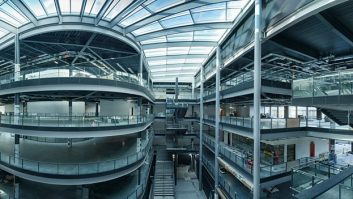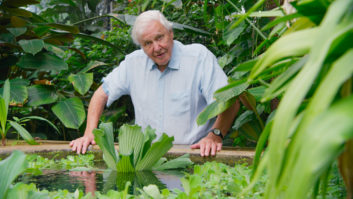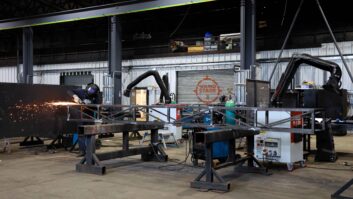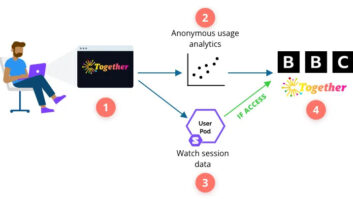The BBC has set up several cellular receive sites based on Link Research technology with fixed receivers for its wireless cameras in the heart of nine major UK cities.
With sites now in Cardiff, Middlesbrough, Carlisle, Newcastle, Manchester, Belfast, Swindon, Oxford and Bristol, a small news team – typically just a reporter and cameraman with a wireless camera – can use these receivers to cover a breaking news story and send live pictures back, without a SNG vehicle.
The cellular sites use a new communications concept which won Link Research the Peter Wayne Award for Innovation in 2005. The live signals from a wireless news camera are transmitted via the TV car directly to a receiver linked into the broadcast network.
It is a particularly effective way to gather news in cities where parking can be difficult and there are few locations to point the satellite clear of tall buildings. Link Research is working with OFDM and cellular diversity so that the digital signals from the cameras bounce off buildings, making this new technique perfect for city centres.
The BBC has also ordered car repeater systems which will be fitted onto their cars so that they can use either 100Mwatts, a 1 watt clip-on amplifier or the 5 watt repeater system, which is built into the car, to get live pictures back. During trials, the BBC used a 1 watt amplifier 17 kilometres away from a live position in Bath (line-of-sight) to receive pictures back in Bristol.
“Cellular diversity systems represent a major advance in news gathering and event coverage, as recognised by Link’s IABM Peter Wayne Award for Design & Innovation at IBC2005,” John Mulcahey, general manager at Link Research commented. “We are also receiving numerous enquiries from other broadcasters attracted by the freedom of operation and cost savings afforded by this approach and look forward to many more successful installations this year.”
A similar cellular site has already been installed in London to receive the signals from airborne helicopter systems with Link Research’s wireless cameras. Similar systems are currently being used in Helsinki, Stockholm and Brussels.







